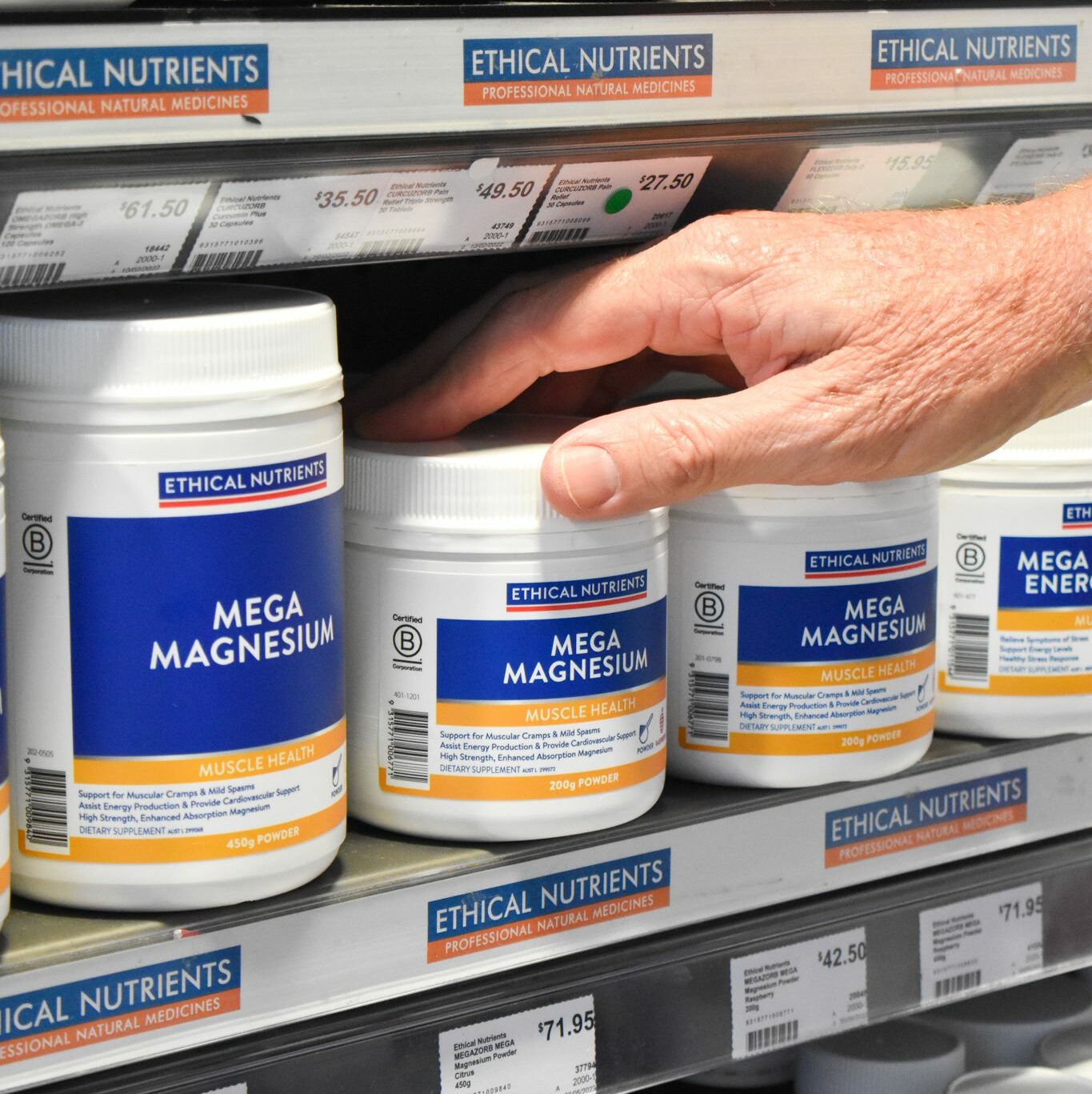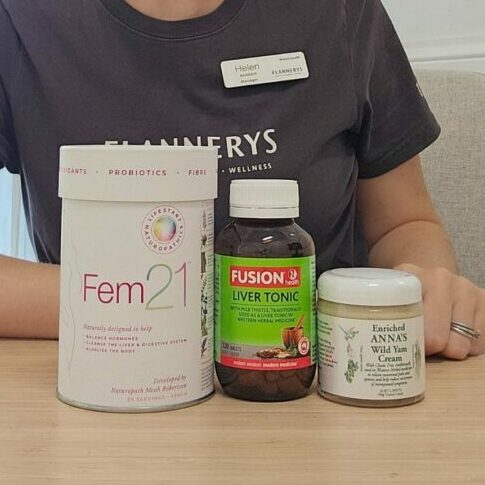
13.12.2022
Magnesium
Magnesium is an essential mineral, needed for hundreds of physiological processes in the body. It is part of many cellular systems in the body that regulate energy production, electrolyte balance, neurotransmission, muscular conduction, inflammation, bone development and blood glucose control.
Written by Nargiza Sowman – Qualified Flannerys Naturopath
Did you know?
Magnesium is a shiny malleable metal which is produced from the explosion of aging stars called supernovas and released into the interstellar space and recycled into new star systems. It is the ninth most prevalent element in the universe, the eighth most abundant element in the earth’s crust, the third most abundant element in sea water and the fourth most abundant mineral in the human body.
Studies have shown that inadequate dietary intakes of magnesium have been associated with increased risk for cardiovascular disease, hypertension, stroke, metabolic syndrome, type 2 diabetes, migraines, mood disorders and premenstrual syndrome.
Muscle twitches, cramps, spasms, palpitations, and in more severe cases, loss of appetite, nausea, vomiting, weakness, fatigue, and constipation can all be signs of a magnesium deficiency.
Certain foods, medications, and stress can also interfere with magnesium levels. I.e., alcohol and caffeine increase the excretion of magnesium, tannins in tea bind and remove minerals such as magnesium. Medications such as antacids, antibiotics, antihistamines & diuretics can reduce magnesium levels. Stress can also reduce hydrochloric acid levels in the stomach – decreasing magnesium absorption.
A high protein / high (saturated/trans) fat diet can also decrease magnesium absorption.
Certain agricultural and food processing methods can also reduce the content of minerals such as magnesium in food. Eating organic, wholefoods where possible ensures all rich mineral content is maintained in your food.
On the other hand, having too much magnesium may cause diarrhoea, low blood pressure, confusion, lethargy, abnormal heart rhythms and a deterioration in kidney function. For this reason, it is important to follow safe intake levels (usually 350mg per day for adults) and consult with a health professional if you have any concerns.
How to get more magnesium into your diet:
Since magnesium is part of chlorophyll (the green pigment in plants), green leafy vegetables such as spinach and silverbeet are great sources. Other foods to consume include nuts (brazil, cashews, almonds, hazelnuts), seeds (pumpkin & chia), wholegrains such as brown rice, bananas, other vegetables (potato, avocado) and legumes (black beans, lima beans, chickpeas).
In supplement form magnesium is usually bound to another chemical compound or element to make it more stable. Some are more bioavailable/better absorbed in the body. Others can produce a laxative effect and are called osmotic or saline laxatives.
Common forms of supplemental Magnesium
Magnesium glycinate – is bound to the amino acid glycine, the most abundant amino acid in collagen. Glycine is also an inhibitory neurotransmitter and can have a calming effect on the brain as well as improve sleep quality. Fusion Magnesium Advanced and the Ethical Nutrients Mega Magnesium ranges contain this form of magnesium.
Magnesium citrate – is bound to citric acid, found in citrus fruits. This form of magnesium is highly bioavailable and best taken on an empty stomach followed with a full glass of water. Try Herbs of Gold Magnesium Citrate, Wise Nutrients Alka Mag and in store practitioner prescribed brands.
Magnesium oxide – is a naturally occurring form of magnesium found in rocks. When magnesium oxide is combined with water it forms magnesium hydroxide which functions both as an antacid and as an osmotic laxative, depending on the dose. The use of laxatives including magnesium-based ones should be used sparingly as long term they can disrupt body chemistry. Denmar Colon Cleanse and Bioceuticals Ultra Muscle Eze contain magnesium oxide.
Magnesium hydroxide – occurs naturally from sea water. Traditionally known as ‘milk of magnesia’ it is commonly used as an antacid to neutralise hydrochloric acid in the stomach. Green Nutritionals Marine Magnesium contains this form of magnesium.
Magnesium phosphate – is found naturally in teeth, bone, and seeds of grains. Magnesium and phosphate are associated in many aspects of cell metabolism that require MgATP, particularly those involving energy production and neuromuscular function. Schuessler Tissue Salts Mag Phos and Blackmores Professional practitioner range M.P. 65 contain this form of magnesium.
Magnesium sulphate – contains magnesium, sulphur, and oxygen. Commonly known as Epsom salts, named after the town Epsom in England, where it was discovered, Epsom salts are the heptahydrate form used in baths to soothe sore muscles.
Magnesium chloride – is a magnesium salt that contains chlorine, naturally extracted from sea water and ancient seabeds. It is sometimes found in ionic or colloidal form in supplements and is the magnesium commonly found in bath salts/flakes as well as topical lotions and sprays.
Look for Amazing Oils, an Australian source of magnesium chloride bath flakes.
Magnesium is an incredibly important mineral for so many of our bodily functions. From blood pressure, insulin release, pain management, stress & mood support … as well as being a muscle relaxant. Speak to our team in store to find the right one to suit your personal needs.
Nargiza Sowman
Naturopath (B.Nat, SCU)
Share this post with your friends






